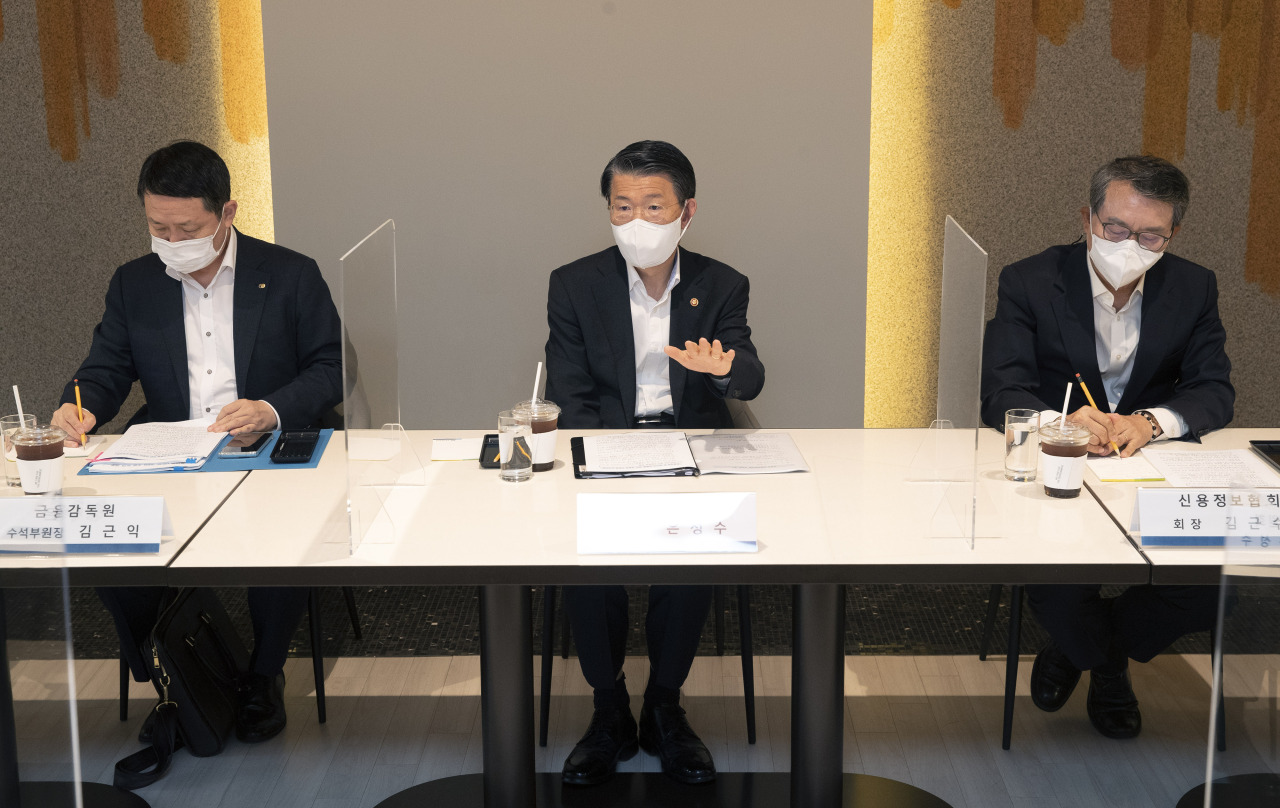FSC introduces new COVID recovery support program, advises financial firms not to share late payment records
By Choi Jae-heePublished : Aug. 11, 2021 - 16:28

South Korea’s top financial regulator on Wednesday encouraged local financial institutions to refrain from penalizing individual borrowers who have missed mortgage payments due to the economic fallout from the coronavirus pandemic, but caught up later.
Financial Services Commission Chairman Eun Sung-soo advised the heads of financial institutions -- including the Korea Federation of Banks, the Korea Credit Information Services and the Korea Federation of Savings Banks -- not to share those late payment records, which can have a negative impact on borrowers’ credit scores.
“Given that the COVID-19 pandemic is an unprecedented crisis, local financial firms need to stop sharing borrowers’ overdue payment information, which they normally take into account when making credit assessments,” Eun told reporters after a closed-door meeting with the financial institutions’ chiefs.
“Since last year, local lenders have extended loan maturity or delayed interest payments to support cash-strapped small and medium-sized firms, which amounted to nearly 200 trillion won ($176 billion). However, individual borrowers, who were not subject to the loan maturity program, found it hard to pay their debts on time,” he added.
Currently, even after a person pays off all their outstanding debts, records of late payments remain for a certain time and are shared among financial institutions, which can take a toll on the person’s credit rating. Penalties can include higher interest rates or lower lending limits if they apply for credit loans in the future, according to the FSC.
Further details of the envisioned plan will be announced Thursday. To prevent moral hazard, only those who are up to date on payments will be eligible for the new credit recovery support measure, Eun added.
During the 1997 Asian financial crisis, under FSC guidance financial institutions supported individual borrowers who were in arrears on small-credit loan payments by limiting the use of their credit histories in the credit evaluation process.
By Choi Jae-hee (cjh@heraldcorp.com)









![[Hello India] Hyundai Motor vows to boost 'clean mobility' in India](http://res.heraldm.com/phpwas/restmb_idxmake.php?idx=644&simg=/content/image/2024/04/25/20240425050672_0.jpg&u=)









